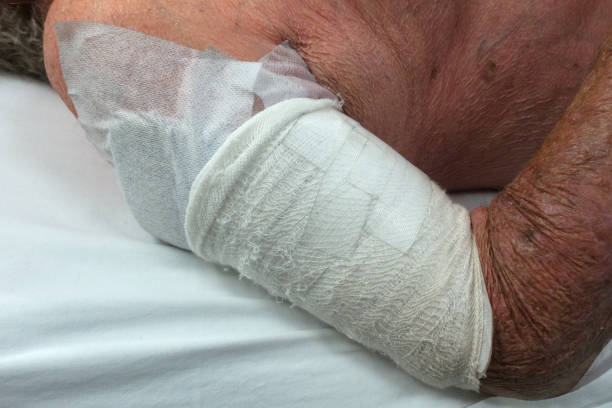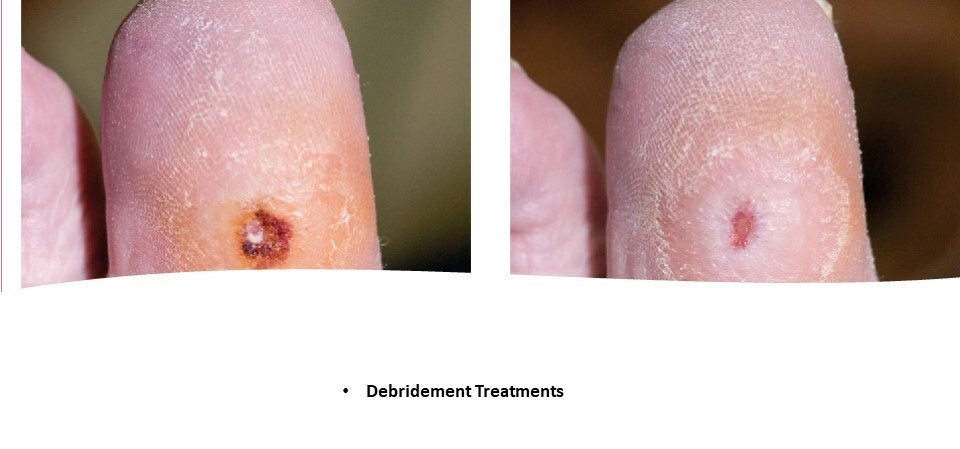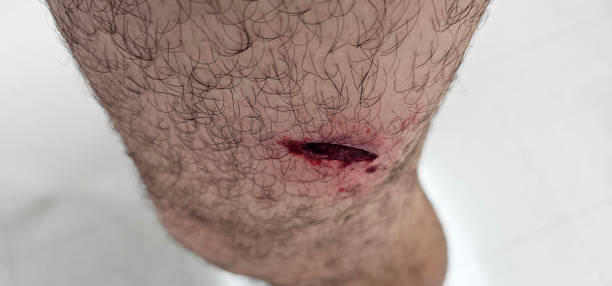Daily wound dressings may simply not be enough, and may require advanced wound management. This may include skin grafting, amputation, debridement, nutritional adjustments or the use of specialized wound dressing items. Wounds such as burns, and diabetes may require advance care at the hospital. However, Mahiri Homecare is available to continue rendering subsequent wound care needs at the comfort of the client’s home. We will work with your physician or surgeon to manage the wound care plan agreed for you.
Debridement Wound Management

Wound debridement is the process of removing dead or infected tissue from a wound to facilitate healing. It’s also used to eliminate foreign material from the wound. The overall goal of debridement aims to help healthy tissue grow, minimize scarring, and reduce complications related to infections. Here are some key points about wound debridement:
- Purpose: Debridement helps reduce the risk of infection and promotes healing by getting rid of unhealthy tissue.
- When Is It Necessary? Debridement is typically performed when wounds aren’t healing properly. It’s especially useful for:
- Old wounds that are stuck in the initial healing stage.
- Chronic wounds that are infected and worsening.
- Wounds at risk of complications from infections.
- In some cases, new and severe wounds may also require debridement.

- Types of Debridement:
- Biological Debridement: Involves using sterile maggots (from the common green bottle fly) to eat away old tissue, control infection, and promote healing. It’s suitable for large or infected wounds, including those with antibiotic-resistant bacteria. Note: This procedure is normally conducted by the client’s physician or surgeon and may be assisted by Mahiri’s HomeCare Team.
- Enzymatic Debridement: Uses ointments or gels containing enzymes to soften unhealthy tissue. It’s ideal for individuals with bleeding issues or high surgical risk. Note: This procedure can be conducted by Mahiri’s HomeCare Team with guidance from our specialists or the client’s referring physician or surgeon.
- Autolytic Debridement: Leverages the body’s natural enzymes and fluids to soften bad tissue. It’s best for noninfected wounds and pressure sores. Note: This procedure is normally conducted by the client’s physician or surgeon and may be assisted by Mahiri’s HomeCare Team.
Get in touch and find out how we can support you with your Debridement Wound.

